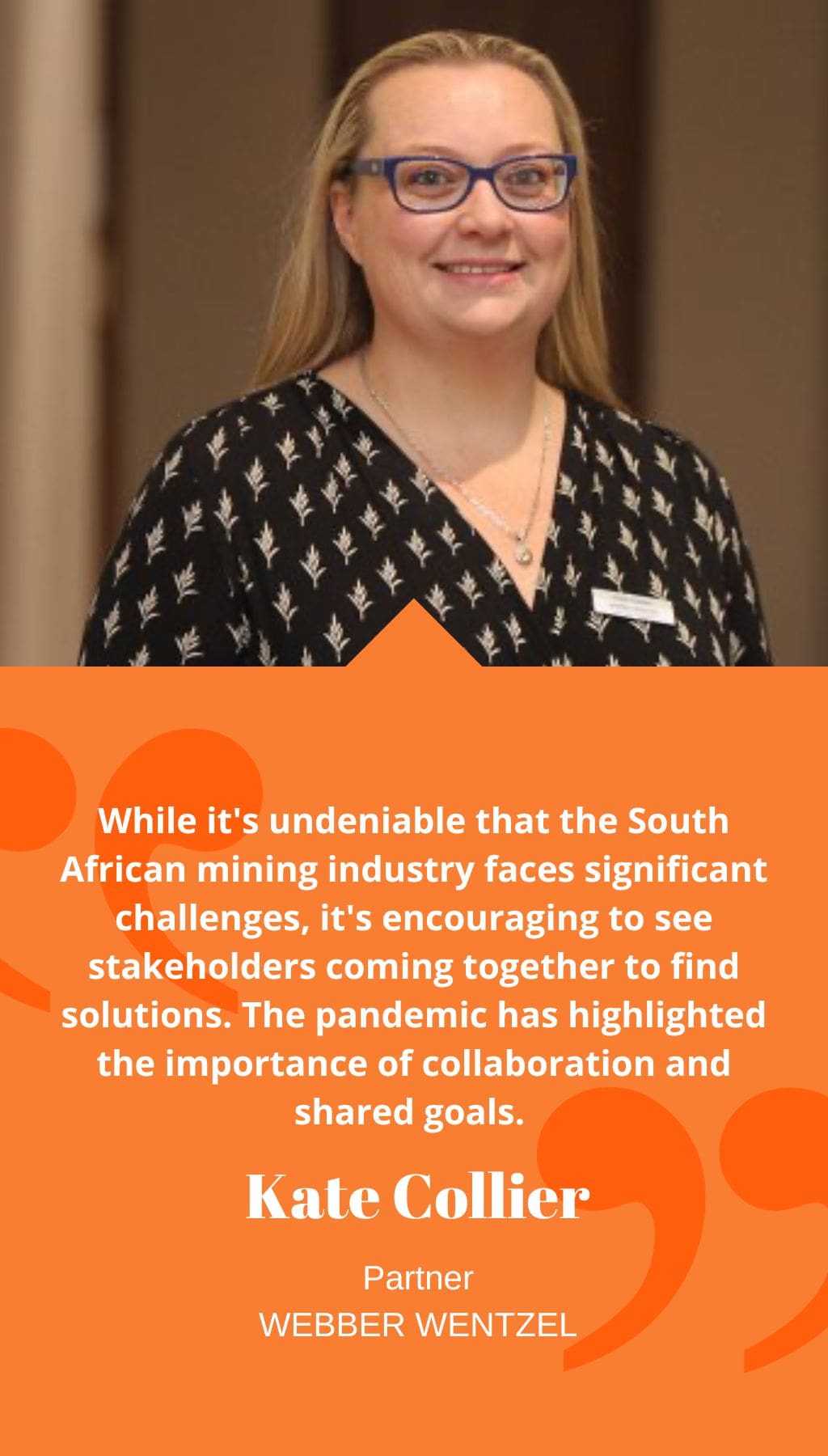
- South Africa | 18 October 2021

Can you give an overview of Webber Wentzel and the company’s history in South Africa?
Webber Wentzel is a leading full-service law firm that has been operating for over 150 years. We are recognized as the premier legal firm on the African continent, providing our clients with tailored and commercially focused business solutions. With the largest dedicated mining team in Africa, we have the expertise and bench strength to handle multi-disciplinary matters for clients throughout the entire mining lifecycle. Our client base spans various players in the industry, including mining companies, governments, financiers, service providers, suppliers, and advisors.
How does the mining industry’s response to the pandemic compare to other sectors?
In response to the pandemic, the mining industry took swift action. When the pandemic started, mines were temporarily shut down, with only essential services employees allowed to work. The industry proactively engaged with stakeholders such as the Minerals Council and the government to develop precautionary measures for the safe reopening of mines. Notably, the largest mining union in South Africa, AMCU, advocated for Covid to be treated as an occupational health issue, resulting in the implementation of specific codes to prevent the spread of the virus in mining operations. Furthermore, the industry has expressed a desire to play a role in vaccine distribution, with some companies willing to procure and administer vaccines to their employees and surrounding communities.
What implications do you see the pandemic having on the overall working culture in South Africa?
The pandemic has brought significant changes to working culture, particularly in terms of remote work. Many employees have shifted to working from home, leading to policy and risk management developments in managing this new arrangement. Additionally, there has been a greater recognition of the importance of mental health in the workplace, with employers embracing flexibility and technology to support their employees’ well-being. However, it’s important to note that the mining industry faced unique challenges due to the nature of the work, requiring creative policies to accommodate employees who could not work remotely while ensuring their safety.
What are the main regulatory concerns for the South African mining industry?
The main regulatory concerns in the South African mining industry vary depending on the stage of operation. Some of the common concerns include ensuring compliance with ownership requirements outlined in the Mining Charter, navigating the lengthy process of obtaining environmental licenses, particularly water use licenses, and establishing positive relationships with host communities. It’s crucial for mining companies to develop a Social Compact with communities to foster shared value and sustainability beyond the lifespan of a mine.
Do you have a final message for our international readership?
While it’s undeniable that the South African mining industry faces significant challenges, it’s encouraging to see stakeholders coming together to find solutions. The pandemic has highlighted the importance of collaboration and shared goals. We hope that this spirit of cooperation will persist beyond the Covid era for the benefit of the industry. Furthermore, we remain optimistic about the future of mining in South Africa, especially with recent developments such as the announcement on private power generation, which will provide a much-needed boost and serve as a turning point for the industry.














